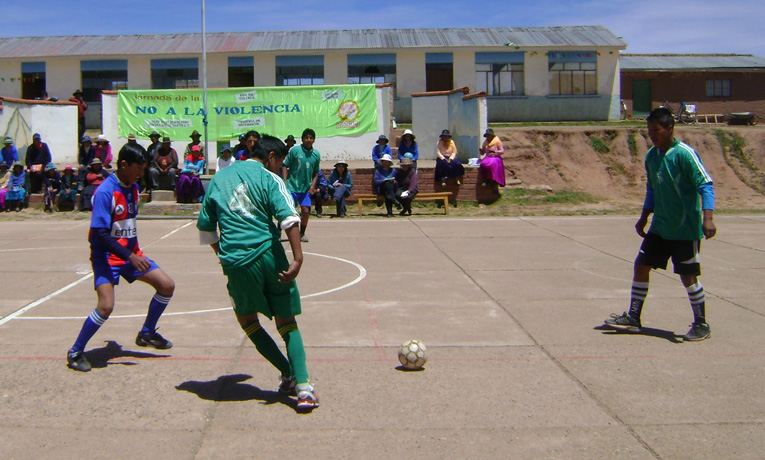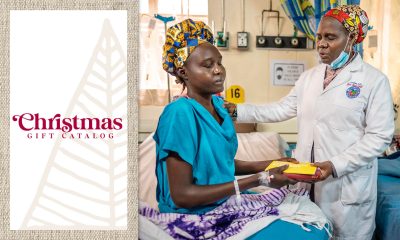In Caquiaviri, Bolivia, domestic violence affects 70 percent of the population. Samaritan's Purse developed a program to help youth see that they could end the cycle of violence.
by Eliseo Tintaya, who helps develop the ability of community leaders in Bolivia
According to the local ombudsman office in Caquiaviri, Bolivia, domestic violence is a problem for 70 percent of the families we work with in the area. At the beginning of this year, Samaritan’s Purse launched a project called Family Wellbeing to combat the devastating social ramifications of violence within the home. The focus of the project is to sensitize children and adolescents to the problem of domestic violence so that, as they mature, they have a different perspective on the issue and play a part in transforming future social structures.
The project has been widely accepted both by students and teachers. In March, we sponsored a regional gathering at the Laura Llocolloco School. Teachers and students from nine different communities participated in the event. Every high school class prepared a series of dramas and presentations to promote their stance against domestic violence. They also talked about human rights, incident reporting systems, and strategies to combat domestic violence.

In the Family Wellbeing Program, youth were encouraged to share their feelings and learn how God can change their lives.
After the presentations, students organized a soccer tournament to show that they could engage in activities that normally provoked aggression in a peaceful manner; they wanted to demonstrate that the same principle could be applied with their families and friends. Students hung anti-violence banners all over the playing field and held each other accountable to the standard.
At the end of the event, each class received a certificate that read, “Classroom free of violence.” The certificate served to remind students of the commitment they had made. Parents, teachers, and students were all tremendously grateful to Samaritan’s Purse for the event and begged us to keep working with the children.
In the course of the event, we had opportunities to interact with some of the students. They shared experiences we can’t even begin to comprehend. One student in particular–Freddy Arias–shared his experience on the matter. According to him, domestic violence has always been a problem in the community. As a child, he often saw his female friends being beat by their fathers when their failed to match up to their expectations. The same events occurred in his family. He longed to help, but he didn’t know how. Though his father was poor, he always seemed to have money for his harmful vices and would often squander the family’s savings on alcohol and parties. It almost always backfired on Freddy’s mother.

Each school that participated in the program received a certificate to remind students of their commitment to remain violence-free.
To make things worse, it was almost understood that this way of life was the norm, so no one ever challenged the all-too common-practice. That is why this “no violence” event was so liberating. Although the program may not immediately stop violence in the children’s homes, it gave them the opportunity to share their feelings and, most importantly, taught them that God has a better way for them if they surrender their lives to Christ and order their families according to His standards.
Our prayer is that, as we work with these communities, Freddy Arias’ dream—expressed in a poem—would come true through the transforming power of Jesus Christ. “Please Dad, please, don’t get drunk. We are the ones who suffer; the ones who cry and mourn when you hit mom. Stop it. Stop beating mom. Please Dad, please.”





